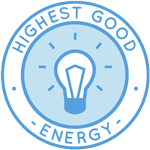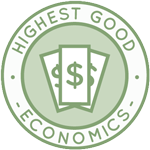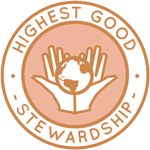Sustainable Global Progress – One Community Weekly Progress Update #439
If we’re not creating sustainable global progress, what kind of progress are we creating? One Community is an all-volunteer global think tank creating open source DIY-replicable “sustainable global progress” components. They include food, energy, housing, education, for-profit and non-profit economic design, social architecture, fulfilled living, global stewardship practices, and more. We see the creation of a sustainable world within our lifetime through self-replicating teacher/demonstration hubs that share how to build and evolve these solutions for “The Highest Good of All“.
- Here’s our project overview
- Here’s our world-change methodology
- Here’s how this becomes self-replicating
- Here’s how we are open source and free-sharing all the do-it-yourself designs

OUR MAIN OPEN SOURCE HUBS
Click on each icon to be taken to the corresponding Highest Good hub page.
One Community’s physical location will forward this movement as the first of many self-replicating teacher/demonstration communities, villages, and cities to be built around the world by creating sustainable global progress. This is the August 22nd, 2021 edition (#439) of our weekly progress update detailing our team’s development and accomplishments:
Sustainable Global Progress
One Community Progress Update #439
DONATE | COLLABORATE | HELP WITH LARGE-SCALE FUNDING
CLICK HERE IF YOU’D LIKE TO RECEIVE AN EMAIL EACH WEEK WHEN WE RELEASE A NEW UPDATE
YOU CAN ALSO JOIN US THROUGH SOCIAL MEDIA
Sustainable Global Progress
ONE COMMUNITY WEEKLY UPDATE DETAILS
SUSTAINABLE GLOBAL PROGRESS – HIGHEST GOOD HOUSING PROGRESS
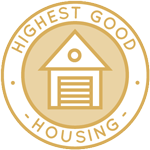 One Community is forwarding sustainable global progress through Highest Good housing that is artistic and beautiful, more affordable, more space efficient, lasts longer, DIY buildable, and constructed with healthy and sustainable materials:
One Community is forwarding sustainable global progress through Highest Good housing that is artistic and beautiful, more affordable, more space efficient, lasts longer, DIY buildable, and constructed with healthy and sustainable materials:
- Learn about: Our Upcoming Crowdfunding Campaign
- Learn about the different village models: 7 Sustainable Village Models
- Visit the open source portals for the first two: Earthbag Village OS Hub | Straw Bale Village OS Hub
This week the core team continued working for creating sustainable global progress and on the “Earthbag Construction Footers, Foundation, and Flooring” review for finalizing the live page.
The focus this week was continued proofreading and commenting on the final version of the Earthbag Dome Footer Foundation and Flooring document, adding comments and suggestions for improvement and organization that better matches the flow of the actual construction of the Domes. The pictures below share some of this work.
Here’s work from another team member working on this too.
And the core team continued what we hope will be the final review of the Murphy bed assembly instructions for sustainable global progress. We continued to recreate the Murphy bed in SketchUp 3D, assembling it using the latest version of the instructions. This week we focused on assembly of the bed support wall and framing of the bed and hardware installation. Pictures below are related to this work.
Jose Luis Flores (Mechanical Engineer) completed his 57th week creating sustainable global progress and finishing the Net-zero Bathroom component of the Earthbag Village.
This week Jose Luis began updating the dimensions of the roof access flash to coincide with the dimensional changes of the roof. The dimensional changes included the cross-section of the roof access and the orientation of it.
He began by adjusting the dimensions of the flash that run parallel to the slope of the inner roof. Jose Luis then adjusted the roof saddle dimensions and the corresponding flash on it.
The same basic idea was maintained, but the reference orientations of the flash changed making the resizing a bit tedious. The pictures below show some of this work.
Jeson Hu (Aerospace Engineer) completed his 24th week helping with sustainable global progress and research related to the solar microgrid design, sizing, and cost analysis specifics. This week, Jeson researched a 150kW diesel generator in addition to the 100kW diesel generator spreadsheet that he already made.
He finished inputting all the specs of 150kW diesel generators into the spreadsheet, including output, voltage, runtime, fuel consumption, warranty, and weight. Jeson also inserted the product specs links in the spreadsheet, converted them to PDFs, and saved in dropbox.
He began contacting the diesel generator companies about the price, and got many responses asking about what options we want the generator to be. He asked Vicente about the options, and since Vicente is also not sure about which option suits us, Jeson asked the companies for quotes for both options.
They have not replied yet, so we’re following up again. In addition to all this, Jeson did a final review on the solar hardware research and solar incentive research, and addressed comments to both. The pictures below share some of this developing work.
Aidan Geissler (Sustainability Researcher) completed his 16th week creating sustainable global progress and helping with 2nd-to-final review, feedback, and content editing. This week Aidan continued to provide management and guidance to the Aircrete and earthbag compression testing team.
He reviewed their research, reporting, videos, calculations, and trial results. Aidan also provided questions, comments, suggestions, and concerns to guide the development of the mixing and testing plan, documentation of the process, and results of the trials. Pictures below are related to this work.
Frank Roland Vilcapaza Diaz (Mechanical Engineer) completed his 9th week creating sustainable global progress helping with the Earthbag Village energy specifics.
This week Frank worked on reading though the needed information to calculate and analyze energy consumptions on an open system (meaning the effects of different losses that are not fixed, such as an open window or people walking in and out) to compare it to the system that is being developed by One Community. The pictures below relate to this.
Shreyas Dayanand (Battery Research Engineer) also completed his 8th week creating sustainable global progress and helping with the solar microgrid design specifics related to electric vehicles and battery sizing.
This week Shreyas worked on obtaining the commercials for different levels of charging of a generic Electric Vehicle with a 100 kWh battery pack.
He also performed techno-commercial analysis on the HOMER GRID application using different cases by varying the EV charger size but keeping the “ON-DEMAND” profile constant (as this would most likely resemble real-life and day-to-day scenarios).
Having understood the results from the analysis, Shreyas drew a few conclusions that help to understand the factors on which the commercials for EV charging vary upon. These results are further illustrated as shown in the pictures below.
The Compression Team consisting of Dominick Banuelos (Civil Engineering Intern), Jarot Tamba (Civil Engineering Intern), John Paul D. Matining (Civil Engineer Intern), and Marcus Nguyen (Civil Engineering Intern) completed their 7th week creating sustainable global progress and helping with the Aircrete and earthbag compression testing.
This week the team worked together to finish what can be done such as adding information, answering comments, and formatting. They also worked with the team to get the stabilized earth ready. This included working on calculations and editing the excel sheet for the stabilized earth calculations.
All of the cylinder mixtures have been determined and successful cylinders were made. The group then spent time organizing their plan and collaborating on having a solid schedule, mixing plan and documents before the week’s end.
A standard aircrete video was also created to show how they have made aircrete in the cylinder. Overall, the group feels they are very close to being ready to make the actual batch of cylinders to compression test.
Tiffany Gao (Sustainability/Plastics Researcher) completed her 5th week as a researcher, reviewer, and web developer creating sustainable global progress. This week Tiffany conducted a lot more research into non-recyclable recycling and began writing out the options on the overall non-recyclables recycling web page.
Finding numerous resources, she found a lot of incineration and gasification options that are being used worldwide and assessed by the EPA. Some of these include rotary kiln incineration, moving grate incineration, fluidized bed incineration, and plasma gasification.
Tiffany learned that very few effective waste technologies can manage waste without producing adverse effects, making her search for good small-scale community options more difficult. She is hopeful however, and will continue to write up her research.
The pictures below share some of this developing work.
SUSTAINABLE GLOBAL PROGRESS – DUPLICABLE CITY CENTER PROGRESS
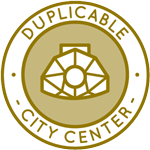 One Community is forwarding sustainable global progress through a Duplicable and Sustainable City Center that is LEED Platinum certified/Sustainable, can feed 200 people at a time, provide laundry for over 300 people, is beautiful, spacious, and saves resources, money, and space:
One Community is forwarding sustainable global progress through a Duplicable and Sustainable City Center that is LEED Platinum certified/Sustainable, can feed 200 people at a time, provide laundry for over 300 people, is beautiful, spacious, and saves resources, money, and space:
- Learn about this building and it’s function: Duplicable City Center Open Source Hub
This week the core team continued work on the Duplicable City Center Project Specification and Design Basis documentation for creating sustainable global progress. The focus this week was on collecting more data about the possible construction locations (Zip Codes) and collecting related design criteria such as Wind, Snow, Tornado, and Seismic criteria. Pictures below share some of this work-in-progress.
David Na (Project Management Adviser/Engineer) completed his 23rd week in creating sustainable global progress and helping with input and management of the Parking Lot and Sustainable Roadways, Walkways, and Landscaping tutorial development, as well as the City Center Water Catchment Designs.
This week David assigned action items for his team. Due to the the Roadways, Walkways, and Landscaping tutorial being close to completion, he was not able to give Daniela more than 4-5 hours of work (approximate). David met with Carol this week via Zoom to communicate the details of the cost analysis and answer any questions that Carol may have.
David also looked through the Roadways doc to address and resolve remaining comments. Pictures below are related to this work.
Carol Nguyen (Civil Engineer) also completed her 17th week in creating sustainable global progress and helping with the Sustainable Roadways, Walkways, and Landscaping tutorial development.
This week, Carol worked on calculating the length and area of the One Community roadways: fire truck access path with bike path and pedestrian path (green lines in CAD), and bike path and pedestrian path only (blue lines in CAD).
This was to calculate the roadway costs. Carol also wrote missing introductions for different sections on the report, and researched and wrote the section for cross section layers and functions. Pictures below are related to this work.
Luis Manuel Dominguez (Research Engineer) completed his 17th week in creating sustainable global progress and helping with research related to the City Center Eco-spa designs. This week Luis returned to the team and began his work on the controls and instrumentation diagrams for the City Center Spa.
He was able to catch up on the team’s progress and began constructing a plumbing and instrumentation diagram (P&ID) after reviewing the updates. This also involved locating several softwares that provide the proper symbols and annotations, while being reasonably priced.
Luis was able to narrow his search down and select the Lucid Chart software that operates similarly to Google Drive in terms of sharing linked documents and allowing the team to make comments to the file. Below is the first draft of the P&ID and there will be significant detail added later. Pictures below are related to this work.
Venus Abdollahi (Architectural Designer) completed her 6th week in creating sustainable global progress and helping finish the Duplicable City Center roof designs. This week Venus completed the initial dormer design.
For detailing the dormer, she is using Revit to create 3D details. She created the 3D isometric section of the dormer roof and added different layers of materials according to given documents.
Venus also researched on attaching the opening to the main dome structure and designed the dormer based on initial research. Next she will complete research about the best way to attach the wooden frame to the structure. See pictures below.
John Aquino (Electrical Engineer) also completed his 6th week in creating sustainable global progress and helping lead the Duplicable City Center Electrical designs.
This week, John created an Electrical Panel schedule template to be used for the Duplicable City Center (DCC) project. Hopefully, this will be the standard template used moving forward as it has configurations for various types of distribution (i.e. for 1PH or 3PH systems). An electrical sheet has also been drafted to illustrate the page visually.
In addition, a template for mechanical equipment was created, which will be integral during the coordination with the mechanical team on the types of HVAC equipment to be used. Pictures below show some of this work.
And Carlos Lillo (Engineering Technician) also completed his 6th week in creating sustainable global progress helping with the pallet furniture designs for the Duplicable City Center guest rooms.
This week Carlos finished the 2nd Level Animations on 3 of 4 of the Pallet Furnitures, which are Bed Pallet, Chair Pallet and Table Pallet. Next week Carlos will focus fully on the Wardrobe.
He found out how to solve a critical issue when rendering, where a strange black mesh appeared when animating the screws. He applied that fix to all the renders and the problem will no longer be present. Carlos also modeled new requested brackets, added more camera angles, and added color to highlight the components. Pictures below are related to this work.
Dipanshi Batra (Mechanical Engineer) completed her 4th week in creating sustainable global progress and working on the Duplicable City Center connectors we’ll use to build the domes.
This week Dipanshi engaged in continuation of active research on Failure Modes, connectors and different design concepts. 3 designs: Hub Connector “V”, Stamping/DIY “V”, and “V” sleeve are being explored.
Our intent is not to go ahead with the custom manufactured hub as a final option but we still want to analyze how these contribute to joint strength and how there can be compensation for the same in our DIY design without the Hub. Pictures of some of this work are below.
Ibukun Shogbamu (Junior Mechanical Engineer) completed his 4th week working on the City Center HVAC Designs. This week Ibukun summarized the report comparing the viability of using either a regular minisplit multi zone HVAC setup or a Variable Refrigerant Flow (VRF) system into a spreadsheet.
Implementation of the minisplit multi-zone system appears to be our best choice based on certain factors such as purchasing cost, installation costs, size, etc. The pictures below share some of this developing work.
Andrew Wilbert Vidianto (Mechanical Engineer) completed his 4th week working on the Duplicable City Center connectors we’ll use to build the domes.
This week, Andrew spent most of his time researching on the common types of wood connectors, rules on metal bending, and lumber drilling. Andrew also designed and ran several finite element analysis tests on a designed V lumber connector using SolidWorks.
With 2.2 factor of safety, research about maximum allowable load on 2×12 LVL lumber was conducted before running the FEA Tests. Pictures below are related to this work.
SUSTAINABLE GLOBAL PROGRESS – HIGHEST GOOD FOOD PROGRESS
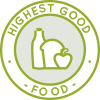 One Community is forwarding sustainable global progress through Highest Good food that is more diverse, more nutritious, locally grown and sustainable, and part of our open source botanical garden model to support and share bio-diversity:
One Community is forwarding sustainable global progress through Highest Good food that is more diverse, more nutritious, locally grown and sustainable, and part of our open source botanical garden model to support and share bio-diversity:
- Learn about the structures: Hoop House Hub | Aquapini & Walipini Open Source Hub
- See what we’ll be growing: Gardens & Hoop Houses | Large-scale Structures | Food Forest | TA
This week Qiuheng Xu (Landscape Designer) completed her 46th week volunteering, now helping with the Aquapini & Walipini external landscaping details. This week Qiuheng put together the whole model in Lumion and then she rendered a plan view based on last week’s comments. Qiuheng revised the model and exported the updated walkthrough too.
SUSTAINABLE GLOBAL PROGRESS – HIGHEST GOOD EDUCATION PROGRESS
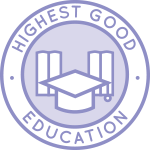 One Community is forwarding sustainable global progress through Highest Good education that is for all ages, applicable in any environment, adaptable to individual needs, far exceeds traditional education standards, and more fun for both the teachers and the students.
One Community is forwarding sustainable global progress through Highest Good education that is for all ages, applicable in any environment, adaptable to individual needs, far exceeds traditional education standards, and more fun for both the teachers and the students.
This component of One Community is about 95% complete with only the Open Source School Licensing and Ultimate Classroom construction and assembly details remaining to be finished. We’ll report on the final two elements to be finished as we develop them.
With over 8 years of work invested in the process, the sections below are all complete until we move onto the property and continue the development and open sourcing process with teachers and students – a development process that is built directly into the structure of the education program and everything else we’re creating too:
- Program Overview: Education Open Source Hub
- How the components work together: How to use the Education for Life Program
- Sustainable Global Progress- Lesson Plans for Life – Lesson Plans How-to
- Sustainable Global Progress- Foundations of Outstanding Leaders, Teachers, and Communicators
- Sustainable Global Progress- Curriculum for Life
- Sustainable Global Progress- Teaching Strategies for Life
- Sustainable Global Progress- Learning Tools and Toys for Life
- Sustainable Global Progress- Evaluation and Evolution
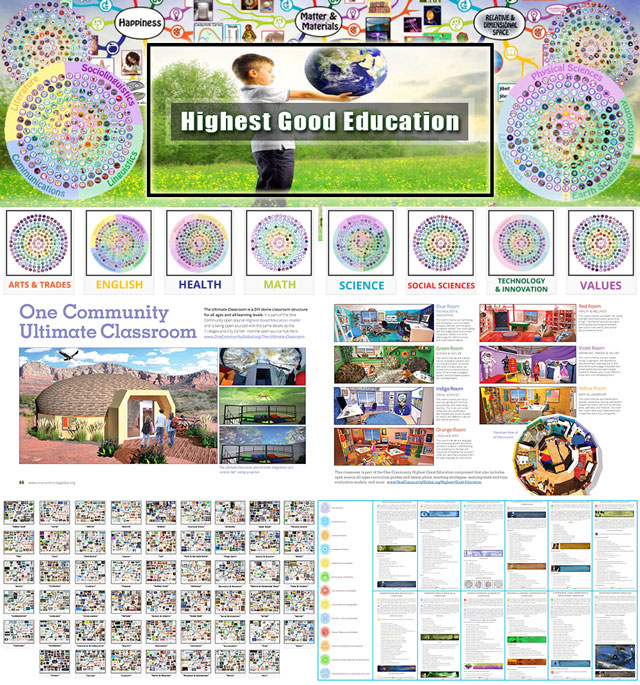
Highest Good Education: All Subjects | All Learning Levels | Any Age – Click image for open source hub
SUSTAINABLE GLOBAL PROGRESS – HIGHEST GOOD SOCIETY PROGRESS
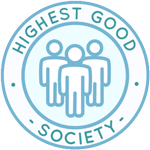 One Community is forwarding sustainable global progress through a Highest Good society approach to living that is founded on fulfilled living, the study of meeting human needs, Community, and making a difference in the world:
One Community is forwarding sustainable global progress through a Highest Good society approach to living that is founded on fulfilled living, the study of meeting human needs, Community, and making a difference in the world:
- Read the Highest Good society overview: Highest Good Society
- Learn about the model for fulfilled living and sharing: A Day in the Life
- Learn about the 4 economic models: RBE | For-profit | Non-profit | Entrepreneurship
- Learn about our open source community collaboration and management software: The Highest Good Network
This week the core team completed 27 hours managing One Community emails, social media accounts, interviewing potential new volunteer team members, and managing volunteer-work review and collaboration not mentioned elsewhere here. The picture below relates to this. We also did more testing and bug identification within the Beta version of the Highest Good Network software.
Yueru Zhao (Software Engineer) completed her 25th week working on the Highest Good Network software. This week Yueru continued working on UI enhancement.
She added a search bar in the main reporting page so the users can type a name to filter the people, projects, and teams table. She also removed the blue square heat map and still kept the detailed blue square tables. Additionally, Yueru spent time looking into a start date issue. The pictures below are related to this work.
Narek Tsaturyan (Software Engineer) completed his 3rd week working on the Highest Good Network software. This week Narek worked on the header summary bar. He fixed issues with spacing and improved code readability.
He also fixed spacing problems and improved centering in mobile view screen size. In addition to the dashboard header, Narek worked on the timelog component, and added the ability for users to submit weekly summary reports through the header summary bar.
He also completed code reviews. Next week Narek will continue working on the header component and refactoring code. The pictures below are related to this work.
Cameron White (Software Engineer) completed his 2nd week working on the Highest Good Network software. This week Cameron continued fixing bugs, making UI adjustments, and implementing minor feature requests.
He also finished refactoring the time entry form, and began work on back-end changes required to implement outstanding feature requests and bug fixes. The most significant of these changes is that blue squares are now automatically issued for excessive edits and edits to time entries are recorded differently. See the related pictures below of this work.
Aleksandra Gorkovenkø (Graphic Designer) also completed her 2nd week working on images for our open source social media strategy. During this past week, Aleksandra worked on eco-graphics, on design, layouts, and colors.
Beside this, Aleksandra researched ecosystems, environmental changes and climate changes. She incorporated that information into the infographics and posters. Aleksandra created 14 versions of infographics and 8 additional posters that are about climate change. You can see some of these below.
AND WE PRODUCED THIS WEEKLY UPDATES BLOG – CLICK HERE TO SUBSCRIBE
FOLLOW ONE COMMUNITY’S PROGRESS (click icons for our pages)
INVESTOR PAGES
GET INVOLVED
DONATE | WAYS ANYONE CAN HELP | MEMBERSHIP
CLICK HERE FOR ALL PAST UPDATES
 One Community
One Community